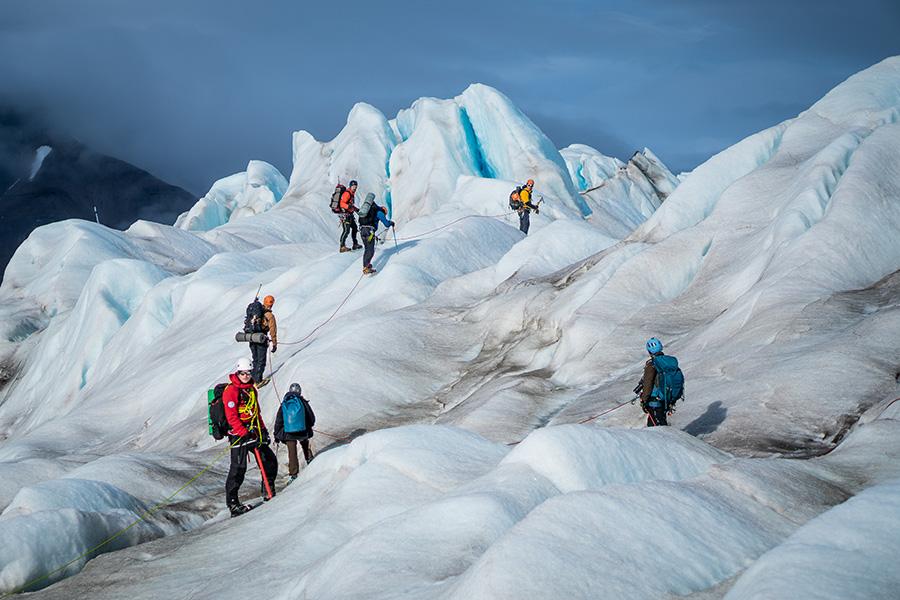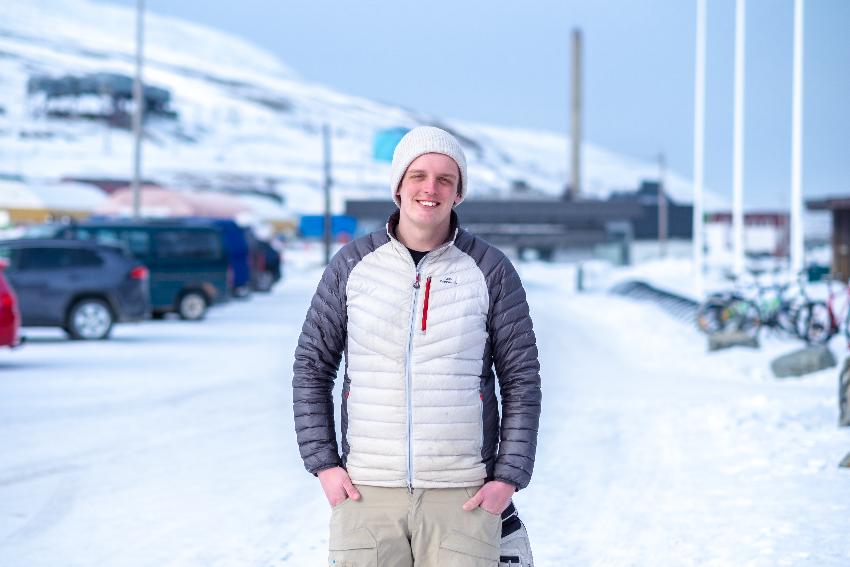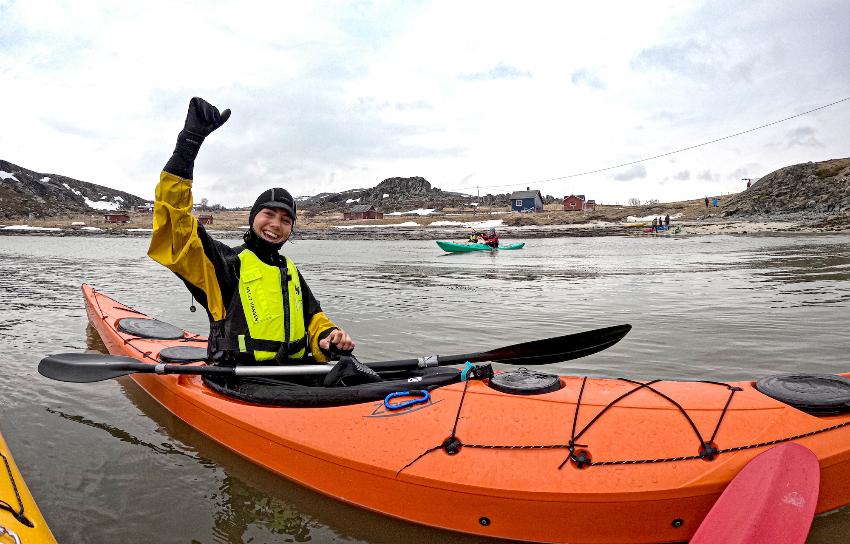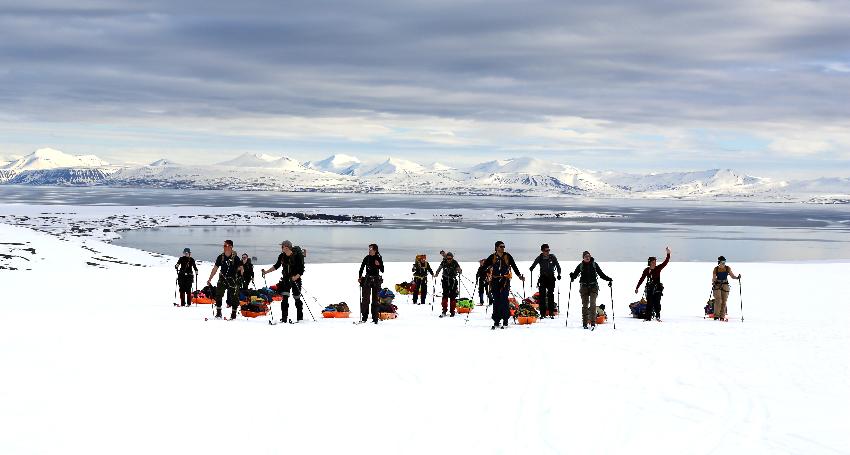Having a guide education in the remote arctic nature implies more than great opportunities for adventure. Arctic Nature Guide (ANG) has a strong commitment to educate guides about the responsibility they have toward the fragile arctic nature and the safety for their guests. You will learn the tools needed to travel safe and how to lead guests leaving as little trace as possible in nature. You will get the skills needed to facilitate learning and experiences in nature. An international student group, experienced teachers, guide companies and the arctic nature itself, will help you become one of the Arctic Nature Guides of tomorrow.
This study programme requires compulsory attendance to the introductory meeting.1. Higher Education Entrance Qualification and certified language requirements in English.
2. In addition, you must document a driving licence (both sides of the document are required), category B (passenger car, etc.) or category S (snowmobile) valid in Norway. For more information, see EEA Regulations.
3. Relevant practical experience requirements.
Relevant practical experience for admission to the Arctic Nature Guide program is:
- Work experience as a nature guide, equivalent to a minimum 6 months full time/100 % Or
- Work experience as an officer, outdoor leader or teacher, equivalent to a minimum 6 months full time/100 %
Experience from active arctic outdoor life (eg. volunteer as instructor in winter sport or outdoor life, participation in expeditions or organized outdoor activity, experience as glacier- or climbing instructor) or education in outdoor life can replace lack of work experience. All experience must be equivalent to a minimum 6 months full time/100% and must be documented with valid reference letter.
All work experience, must be documented with a valid employment reference letter.
Please note that the testimonial shall include the dates of starting and ending the employment/activity and the weekly hours of employment/activity.
Admission capacity
15
Citizenship
Some of the courses in the program are offered by UNIS (The University center of Svalbard). To be admitted to the program, applicants must satisfy UNIS's requirement for citizenship. Applicants from countries without security policy cooperation with Norway will not be admitted.
You will find more information about international admission here.
Non-EU students must be prepared to pay tuition fees.
- Nordic applicants: 9500
- EU/EEA + Swiss applicants: 9013
- Non-EU/EEA applicants: 2063
Program description
This international study program will provide candidates with the opportunity to experience Svalbard’s nature and culture at close hand by combining arctic friluftsliv with a practical program in tourism and guiding.
The study program is a full-time program comprising 60 ECTS credits. The study program is given on Svalbard. The study program is a given in cooperation with UNIS – The University Center in Svalbard.
The study program is according to the profession standard defined by the Norwegian Nature Guide Association (NNGA). By fulfilling the study program and complete the required amount of nature guide work experience, the candidates are in a position of becoming members of NNGA and an approved Arctic Nature Guide and International Mountain Leader (UIMLA) by the Norwegian Nature Guide Association.
Arctic Nature guides educated in this study program have work limitations according to these frames of nature; an Arctic Nature Guide do not have competence to work in nature where there is a particular risk of falls with serious consequences or terrain steeper than 30 degrees on layered winter snow.
The courses contains a large degree of activity and long outdoor expeditions. It is therefore required that the students are in good physical shape and able to carry equipment for a multidays expeditions in the arctic. The candidates must be able to maintain a physical and mental surplus during long and cold outdoor excursions sleeping in tent and snow caves.
Most of the field excursions involve Nordic mountain skiing, so candidates must be experienced skiers and be physically fit for Nordic mountain skiing over long distances. Candidates must have their own personal equipment in accordance with the individual equipment list.
Learning outcomes
The program provides broad theoretical and practical knowledge for safe travel and guiding in Arctic nature, including leadership, hostmanship, and experience-based tourism. Students gain insight into Arctic nature, culture, history, and geopolitics, and develop skills in safety routines, group leadership, and communication of values and experiences. The program fosters awareness of the responsibilities and competencies required of nature guides, encouraging reflection on personal values and the guide’s role as an ambassador for sustainable interaction with the vulnerable Arctic environment.
Job prospectives
Future employment opportunities may be found primarily in guiding activities in the Arctic region. After completing the study programme, students will have gained expertise that will be relevant for employment on the mainland in outdoor recreation, tourism, education, culture and environmental hostmanship, as well as in voluntary organizations.
Degree Name
NoneStudy plan
Language of instruction
English.
Teaching and assessment
Student-centred learning activities with problem-based learning approaches, project work, group work, practical and methodical work with guidance are used throughout the study program, in addition to lectures, discussions and the use of ICT. In other words, this involves a lot of self-directed and practical work indoors and outdoors for students.
A large part of the studyprogram takes place in nature and includes practical exercises and the development of experience. Guide role experience will be obtained through a practical training period. This period will be carried out as interval sessions in the autumn semester and in a longer period in the spring semester. The period should consist of about 150 hours in total. The candidate will formulate a plan for the period, which must be approved by the teacher. The criteria for the period are given in a separate document, which candidates will receive at the start of the studies.
During the course of the study, students are assessed through practical and theoretical assignments in addition to requirements for participation, especially in practical subjects.
An overview of formative assessment is provided in the various course descriptions. Students are also assessed through written and oral school exams, as well as written take-home exams and practical exams.
A more detailed description of content, teaching, assignments, and exams is provided in the course description. The framework for and information about required reading materials will also be outlined in the course plans
Destinations for studies abroad

Unni Charlotte Jansen
Seniorkonsulent





